Feature
OZUBULU MASSACRE: THE HIDDEN TRUTH REVEALED By Somuadila Ugwummadu
Following different versions of false news peddled by the Nigerian media and most regrettably, respected individuals, to narrate the very unfortunate incident that happened at St Philips Catholic Church, Amakwa Ozubulu, We, in our culture has dug out the details of this event and how it deteriorated to the August 6 massacre.
Aloysius Ikegwuonu (Bishop), presently a drug baron in South Africa, was born in 1981 to the family of Chief Ikegwuonu, Amakwa Ozubulu. He grew up in a very poor home and often helped his mother who trades at Orie Akpu market, Off Ugwu Orie Bus Stop, Amakwa Ozubulu. ‘Aloyee’ as fondly called by his friends in his early youth stage, first came to limelight in 1999 when he became the senior prefect of Comprehensive Secondary School, C.S.S., (formerly College of Basic Studies, C.B.S.) Egbema Ozubulu; a school founded by Reverend Father Nwabaju Izuchi, a United States based Catholic priest.
Right after his secondary school studies which he finished after his May/June WASSCE examination in the year 2000, he traveled out to South Africa on March 2001 where he became a multi millionaire within his first four (4) months of his stay there. He came back nine (9) months later (December 2001) and splashed his money around. This was the first major drug deal advert in Ozubulu, a land formerly known for the bravery of her indigenes, tranquility and high moral standards. (This seed Aloyee planted did not take time to bear fruits.)
With this, Aloyee attracted many friends to himself especially his school mates at C.S.S.. They indicated interest to serve him and do whatever he wants them to do as long as they will end up as ‘successful’ as he is and as quick as he made it. There was an exodus of Ozubulu youths to South Africa between the years 2004-2007. With these many people around him, Aloyee who had adopted the name ‘Bishop’ in South Africa needed someone he could trust better. He went for his best friend in the aforementioned secondary school, Ginika Nwoke.
Ginika, alias Giniyee, hailed from Mbaise in Imo State; he is an orphan and the only child of his parents. He grew up with his uncle, Ite Ego (a butcher at Orie Akpu market, Ugwu Orie Ozubulu) all through his childhood and adolescent age. He gained admission to study Psychology at Nnamdi Azikiwe University, Awka in the year 2001 and was living at an unpainted two storey building, a lodge for students, about 100 meters from Unizik temporary site junction. Due to pressure from Bishop, he abandoned his university education just after his 200 level. Giniyee’s room mate at the University was Nonso Ewulu, alias Ajagara Igwe, who studied Political Science in the same university 2001-2005. Ajagara Igwe was also Giniyee and Bishop’s classmate at C.S.S. Ozubulu.
Bishop’s notorious act began with his own mother. He allegedly sacrificed his mother (who had rejected his ill wealth) to occult group. This allegation seemed more truthful when he refused to raised a stone at his mother’s grave. Bishop leveled his father’s home with an interlocking tiles months after his mother’s death and till today, you cannot identify his mother’s grave in his father’s compound.
To douse this rumor, Bishop engaged in an aggressive philanthropic aid. He renovated most churches at Ozubulu (particularly St Michael’s Catholic Church, Amakwa Ozubulu) the Igwe’s palace and instituted a charity foundation. He also penetrated the state government, donates to the state police and the local vigilante groups.
These events were happening so fast, Bishop was audacious, intimidating and energetic. His friends that traveled to South Africa had started complaining about him: his intimidation and oppression; killings had started; it has become the survival of the fittest, the jungle of beasts. More than six (6) people had died, all from Anambra State in some misunderstanding between Bishop’s group of drug cartel and many more groups of drug cartel in South Africa. Even at this stage, no one took any information about Bishop so seriously. Life went on and on and on.
The peak of this crisis was in a clash between Bishop and his best friend, Giniyee. Bishop claimed he handed Giniyee a package (hard drug) to deliver to a buyer but ended up with some cooked up stories with the intention of duping him. Giniyee denied this, but stated that Bishop’s enemy ambushed him at the point of delivery (in what seemed more like a set up) and made away with the package -a package worth hundred of millions of naira.
It got so heated that it was reported to the Igwe of Ozubulu who summoned the two with their families and pleaded for all to exercise patience till the truth be revealed. Bishop rejected Igwe’s verdict and swore that “isi ga ada” (meaning that ‘head must fall’) within some months if his money is not remitted back to him.
Few months later, the stunning news broke out, September 2015, Ginika Nwoke was shot died in the city of South Africa, the only child, an orphan with a wife and a little girl was killed. An Igbo adage says that “ihe mee onye ara, i mara na onwere mmadu” (meaning that when something happens to a mad man, you will know he has people). Mbaise indigenes made it clear that the only thing that will suffice them is a revenge, Bishop must be killed or a total war against Bishop and his kindred.
Situation started to deteriorate; between October 2015 and March 2017, Ozubulu youths were gunned down on monthly basis in South Africa. The owner of Vacarmata (located around Michael Junction, Egbema Ozubulu) Mr Obinna Ebuzeme, Mrs Nchedo (Nkwado’s wife) and many others, especially the alumni of C.S.S. have been killed.
Since then, Bishop attends occasions with over 50 security personnels, very intimidating entourage, but Mbaise indigenes had not given up. In this latest event, he came back July 2017, he is still being tracked. Investigations revealed that he was to be gunned down on Sunday, August 6, 2017 at St Philips Catholic Church, Amakwa Ozubulu, a church he built himself, from the foundation to the roof. Mysteriously, he got the news and escaped from Amakwa at mid night (Saturday, August 5, 2017).
The killers invaded his church still assuming he was there, opened fire and killed more than a dozen people. To prove it was targeted and purposed to get at Bishop, Bishop’s father ran away the church building with a bullet shot but the killers chased after him and shot him severally to ensure he dies.
OUR STAND
We should all take responsibility. Rather than caution Bishop and reject his wealth, he was celebrated and most regrettably, by churches and others. We also believe that Igwe Ozubulu should have done better. This matter tarried for too long. It does not take a lot to set up a peace committee between Ozubulu and Mbaise. With this recent massacre, the death toll on Bishop’s case has risen to over 40 people from 2015 till date.
ADVICE
From report, this notorious Bishop has stepped on many toes. This particular attack might not necessarily had come from Mbaise people. Many groups are chasing after Bishop. Hence, we advice Ozubulu elders to ostracize Bishop indefinitely till this matter is resolved.
Churches, the state government and individuals should dissociate themselves from Bishop to discourage our younger generation from desperation for wealth. Any bill board with his image at Ozubulu and environs should be taken down immediately.
We also entreat Ozubulu and Mbaise elders to set up a reconciliation committee. Ginika Nwoke’s family must be approached with all humility, sincerity and respect; not because we believed Ginika’s testimony but because we want peace to return to Amakwa Ozubulu for the sake of the innocent ones and Igbo tribe at large.
There is no amount of killings that will bring back the dead, rather, will provoke each other towards more killings. Therefore, any other group that feels aggrieved towards Bishop’s action should be directed to Igwe Ozubulu for more and more reconciliations.
CONCLUSION
If you do not believe this piece, if you are more interested in believing that Fulani herdsmen left every other church just to
Bishop’s church, we don’t take your imagination out. We advice you go down to Amakwa Ozubulu and spend good time to make more investigations.
*culled from Ndigbo Facebook Page*
Feature
Ex-Oyo Governor Ladoja Installed as 44th Olubadan of Ibadan
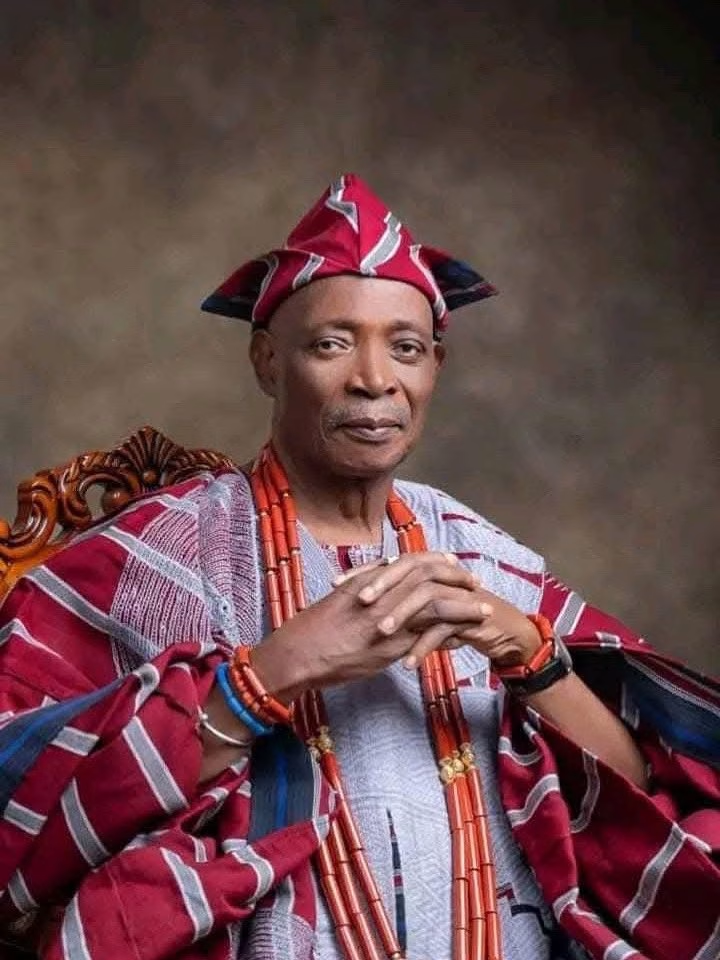
The odyssey of Senator Rashidi Adewolu Ladoja to the ancestral throne of Ibadan is not only historic but profoundly political, laced with trials and triumphs.
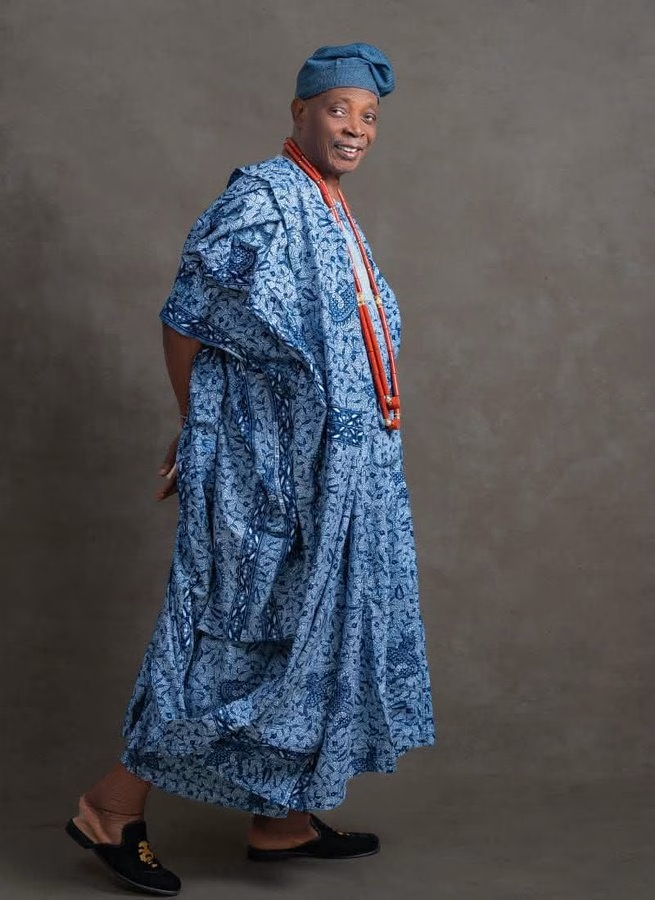
History often unfolds slowly, like a scroll revealing one line at a time. In Ibadan, a city steeped in tradition and resilience, history has once again taken a defining turn.
Oba Rashidi Adewolu Ladoja, former governor of Oyo State, businessman, politician, and activist, is now preparing to ascend the exalted throne as the 44th Olubadan of Ibadanland.
His decades-long journey, filled with trials, victories, and service, tells a compelling story of destiny, courage, and legacy. From political powerhouses to royal lineage, from boardrooms to the battlefields of democracy, Ladoja’s life blends tradition with transformation. His ascension is not only personal fulfilment but also a cultural and historical moment for Ibadanland.
Indeed, his coronation stands as a milestone, a testament to resilience, faith, and destiny fulfilled. On September 26, 2025, Oba Ladoja will be crowned the 44th Olubadan of Ibadanland, closing a circle that began 34 years ago when he became Mogaji of his family compound in Isale-Osi. But this is no ordinary coronation; it is the culmination of a saga defined by ambition, resistance, exile, betrayal, resilience, and ultimately, triumph.
Road to Royalty: From Mogaji to Monarch
It began in 1991 when Rashidi Ladoja became Mogaji (family head) of the Arusa compound in Isale Osi, a deeply rooted quarter in Ibadan South-West Local Government Area. That symbolic beginning marked the first step on Ibadan’s rigorous 36-step chieftaincy ladder, reserved for those destined to wear the revered crown.
The Ibadan succession system is unique among Yoruba kingdoms. Unlike other traditional stools where royal families are narrowed to specific lineages, the Olubadan system is remarkably open and transparent. Two lines of succession, the civil (Otun) and the military (Balogun), run concurrently, and candidates rise step by step until the next in line becomes Olubadan. It is an orderly system that rewards longevity, patience, and service, making the throne one of the most respected in Yorubaland.
On October 1, 1993, Ladoja was installed as Jagun Balogun Olubadan, formally entering the military line of succession. Over the next 31 years, he advanced steadily, surviving political turbulence, personal setbacks, and traditional disputes. Few endure the politically charged and physically demanding journey to the top, but Senator Ladoja did — with grit, patience, and determination.
“I never imagined destiny would call me to the throne at this time. It’s been one of patience, perseverance, and grace,” Oba Ladoja told a gathering at his Bodija residence after his official nomination.
Political Elite Meets Royal Heritage
In a city of warriors and statesmen, Oba Ladoja is the first former governor and senator to become Olubadan.
Trained as a chemical engineer in Belgium, he made his mark in oil, shipping, banking, agriculture, and transport before rising as a political force.
During the short-lived Third Republic, he was elected senator on the platform of the defunct Social Democratic Party (SDP). In 2003, he defeated incumbent Lam Adesina to become Governor of Oyo State on the platform of the Peoples Democratic Party (PDP).
Two years later, he was impeached in what many described as a conspiracy driven by then-President Olusegun Obasanjo and political strongman, Lamidi Adedibu. His reinstatement by the Supreme Court after 11 months in exile was more than a legal victory — it was a political resurrection. It cemented his reputation as “the indomitable warrior”, a man political opponents could not erase or ignore.
That resilience, combined with patient navigation of Ibadan’s chieftaincy system, has now borne fruit.
“It has been a bumpy journey filled with trials, but only made possible by the grace of God,” he told jubilant supporters.
Defiance and Reconciliation
Ladoja’s political career was often defined by principles that put him at odds with powerful figures.
In 2018, when then-Governor Abiola Ajimobi crowned Ibadan High Chiefs as kings, Ladoja stood alone in defiance. He rejected what he called a “carton-paper-made” beaded crown, declaring that the only crown worthy of him was the Olubadan’s. His refusal sparked years of political and legal confrontation.
“Why should I wear a crown not recognised by tradition?” he asked. “The throne is not for the desperate.”
Yet, in August 2024, in a radio interview, he softened his stance, saying unity was more important than pride: “The voice of the people is the voice of God. I am ready to accept the beaded crown if it will bring peace and allow me to serve the people of Ibadan.”
That statement shifted the atmosphere. His colleagues in the Olubadan-in-Council rallied behind him, and he was soon unanimously nominated and approved by Governor Seyi Makinde as the 44th Olubadan.
Unlike his clashes with Ajimobi, Ladoja’s relationship with Governor Makinde has been cordial and strategic. Makinde’s prompt approval of his nomination reflected a convergence of political and traditional power, a necessity in Oyo State where the Olubadan stool carries both cultural influence and political weight.
The Crown and the City
Ibadan is no ordinary city. It is the largest traditional Yoruba urban centre and the historic political capital of the old Western Region. The Olubadan, though largely symbolic, wields influence over millions.
For Oba Ladoja, this reign is not ceremonial. It is an opportunity to redefine the stool, blending cultural authority with political wisdom.
“I pray that my reign shall bring peace, prosperity, and progress to Ibadanland,” he said, calling for unity.
Expectations are high. From Oke Aremo to Abuja, all eyes are on him to redefine the modern monarch’s role not just custodian of rituals, but guardian of peace, diplomacy, and security. He has already urged coordinated efforts to secure Ibadan and Yorubaland amid rising insecurity.
The coronation of Oba Ladoja is more than a local event; it is a national stage. Expected guests include President Bola Tinubu, former Vice President Atiku Abubakar, Senator Rabiu Kwankwaso, former governors, business moguls, activists, and traditional rulers across Yorubaland and beyond.
Their presence underlines the symbolic place of Ibadan in Yoruba and Nigerian politics.
Activism, Sacrifice, and Legacy
Ladoja’s story is not just about royalty; it is about activism and identity. As a NADECO stalwart, he stood against military rule in the 1990s, supporting the pro-democracy struggle after the annulment of the June 12 election.
Chief Adeniyi Akintola (SAN) recalls: “We used his ships for NADECO’s activities after the Senate was dissolved. His businesses were seriously affected — he had a shipping line and the largest palm plantation in West Africa then.”
As governor, he challenged a sitting president. As High Chief, he resisted compromising tradition. As a businessman, he sacrificed fortune for democracy. Now, as Olubadan, he embodies the fusion of political power and cultural authority.
To former Nigerian Ambassador, Dr. Yemi Farounbi, “Ibadan is the intellectual capital of Nigeria. It provided security for the Yoruba in times of war. Peace must return, and the Olubadan must lead it.”
Professor Tunde Adeniran, a former minister, added: “He comes with experience and expansive networks. Expectations are high. We must rally around him.”
For younger Ibadan residents, his ascension represents continuity and hope. “We grew up hearing about his struggles as governor and his fight for justice,” said Akeem Alabi, a postgraduate student at the University of Ibadan. “Now he is our king. We expect him to stand for the people, just as he did in politics.”
The Crown After the Storm
For many, the crowning of Oba Rashidi Ladoja is poetic justice, a fitting epilogue to a life of battles in politics, business, and tradition.
From Mogaji in 1991 to Olubadan in 2025, from impeachment to reinstatement, from defiance to reconciliation, he now wears the crown not as a reward but as a responsibility.
The royal father is no longer just the “cat with nine lives”; he is the king whose destiny has come full circle.
Governor Seyi Makinde has expressed readiness to work seamlessly with Oba Ladoja towards the development of Ibadan city, describing the new monarch as an exemplary leader whose wealth of experience in politics, business, and community service will enrich the Olubadan stool.
Makinde recalled that his own political journey could not be written without Ladoja’s role, stressing that: “Baba remains a father figure whose guidance has shaped many of us. I hold him in high esteem, and I believe Ibadan and Oyo State will benefit from his reign as Olubadan.”
As Ibadan embraces this new chapter, the coronation of Oba Rashidi Adewolu Ladoja stands as both history and prophecy fulfilled a story of destiny, resilience, and triumph, written across the canvas of politics, tradition, and legacy.
CULLED FROM THE GUARDIAN
Feature
𝗜𝗻𝘁𝗹. 𝗗𝗮𝘆 𝗼𝗳 𝗣𝗲𝗮𝗰𝗲: 𝗛𝗼𝗻. 𝗢𝘁𝘂𝗼’𝘀 “𝗡𝗼 𝗗𝗶𝘀𝗰𝗿𝗶𝗺𝗶𝗻𝗮𝘁𝗶𝗼𝗻 𝗣𝗼𝗹𝗶𝗰𝘆” 𝗮 𝗣𝗮𝘁𝗵𝘄𝗮𝘆 𝘁𝗼 𝗣𝗲𝗮𝗰𝗲𝗳𝘂𝗹 𝗔𝗻𝗱𝗼𝗻𝗶
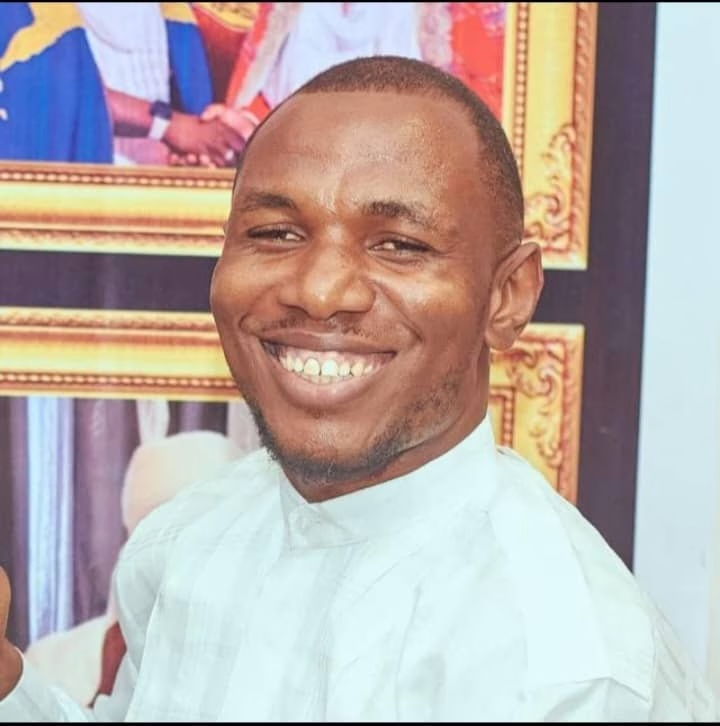
By Ima-owaji G. Shedrack
As the world commemorates the International Day of Peace, attention has once again shifted to the bold and inclusive policies of the Chairman of Andoni Local Government Area, Hon. Promise Lucky Otuo, whose leadership style has been described as a model for peacebuilding and sustainable development.
Since assuming office, Hon. Otuo has consistently emphasized that his government is a “no discrimination government,” a philosophy set to guide his policies and programs across the council.
In a remarkable demonstration of this principle, the Chairman extended empowerment opportunities not only to indigenes but also to non-indigenes residing and trading in Andoni. This inclusive approach, observers say, has deepened trust, fostered unity, and reduced the tensions that often arise from feelings of neglect or inequality.
Mr. Ima-owaji G. Shedrack, a stakeholder in the Renewed Hope family, applauded the initiative, noting that Hon. Otuo has shown that peace is not just about preventing conflict but also a conscious steps in building an environment where fairness and inclusiveness are at the center of governance.
“As Andoni joins the world to mark the International Day of Peace, Hon. Lucky Otuo’s leadership style that is anchored on ‘no discrimination’ is built to offer a clear roadmap, where peace is not only preached but practiced through deliberate policies of fairness and equal opportunity.”
Follow BONA NAIJA for more
Feature
Eid-ul-Mawlid: Uphold Hon. Lucky Otuo in your prayers, Ima-owaji Shedrack Urges non indigenes in ANOLGA

A stakeholder in Andoni Local Government Area of Rivers State, Ima-owaji Shedrack, has called on Muslim faithful in the area to remember the Chairman of Andoni LGA, Hon. Lucky Promise Otuo, in their prayers as they celebrate Eid-ul-Mawlid, the commemoration of the birth of Prophet Muhammad (SAW).
Speaking on Friday during the nationwide celebration, Ima-owaji stressed the importance of continuous prayers for leaders at all levels, describing Hon. Lucky Otuo’s administration as one that transcends sentiments, tribal lines, and religious differences.
“The government of Hon. Lucky Otuo is one beyond discrimination. Both indigenes and non-indigenes are carried along. This is why I urge our Muslim brothers and sisters to use this sacred celebration to pray for him and for the peace, progress, and prosperity of Andoni LGA,” Ima-owaji said.
He further noted that the Eid-ul-Mawlid celebration provides Muslims with another opportunity to renew their commitment to unity and inclusiveness, while also offering prayers for leaders who are steering the affairs of the people with sincerity.
Ima-owaji urged residents of Andoni, regardless of religion or origin, to embrace peace and support the development agenda of Hon. Otuo’s administration, which he said is focused on progress and inclusivity.
Follow BONA NAIJA for more
Feature
What to Know About CBN’s New Geo-Tagging Requirement for POS Terminals
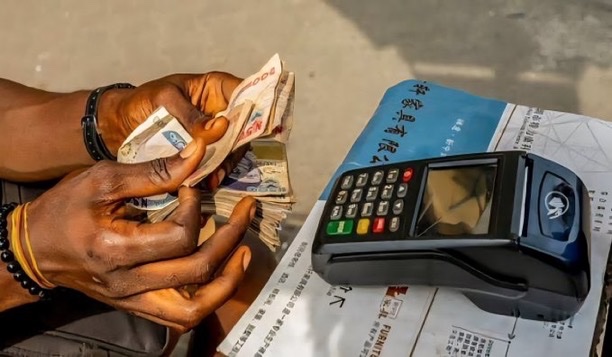
The Central Bank of Nigeria (CBN) has issued a new directive requiring all Point of Sale (POS) terminals to be geo-tagged within the next 60 days, a move designed to curb fraud, enhance oversight, and modernize Nigeria’s digital payment ecosystem.
According to a circular released on August 26, 2025, any terminal not geo-tagged will be deactivated from October 20, 2025.
“This initiative is designed to ensure that all PoS terminals are traceable and that transactions are secure. Terminals operating outside their registered location will be flagged, and non-compliant devices will be deactivated,” the CBN stated.
Here’s a breakdown of what the policy means for operators, agents, merchants, and customers.
What Geo-Tagging Means
Geo-tagging is the process of embedding location data, such as latitude and longitude, into a digital device.
For POS terminals, this means linking each machine to its exact physical address using GPS technology, creating a traceable digital footprint that makes every device verifiable and harder to misuse.
The CBN’s Key Requirements
- Geolocation Features
All POS devices must have GPS and dual-frequency receivers for accurate location tracking. - Real-Time Location Transmission
Terminals must capture and transmit their exact location at the start of every transaction. - Geofencing
Each POS terminal will be restricted to a 10-metre radius around its registered location. Transactions outside this zone will be flagged for investigation. - Registration
Licensed banks and fintechs—such as Moniepoint, OPay, PalmPay, and others—must register each device with exact merchant coordinates through a payment aggregator. - New Devices
No new terminal will be certified or activated without geo-tagging.
Why Geo-Tagging Matters
- Crackdown on Fraudulent Terminals
Geo-tagging eliminates “ghost” or cloned devices and reduces card fraud, unauthorized withdrawals, and misuse of mobile POS machines. It also disrupts ransom collections and terrorism financing through untraceable transactions. - Better Oversight and Transparency
Regulators gain real-time visibility of nationwide transactions, improving fraud detection and aiding financial inclusion strategies by identifying underserved areas. - Boosting Consumer Trust
Customers gain stronger protection knowing every POS is tied to a verified address, building confidence in digital payments.
Impact on Stakeholders
- Banks & Fintechs
Institutions face the challenge of upgrading thousands of terminals and registering them within 60 days, requiring both funding and logistics. - POS Agents & Merchants
Operators must work strictly within 10 metres of their registered business location, potentially disrupting mobile POS services that move around to serve customers. - Customers
Shoppers stand to benefit most, with safer and more transparent transactions in Nigeria’s payment system.
Conclusion
The CBN’s geo-tagging directive is one of the most sweeping reforms in Nigeria’s digital payments landscape. While it presents operational hurdles for banks, fintechs, and agents, it promises stronger security, fraud reduction, and renewed consumer trust in the long run.
Follow BONA NAIJA for more
Feature
Goodluck Nwaneri Pays Condolence Visit To The APC National Chairman
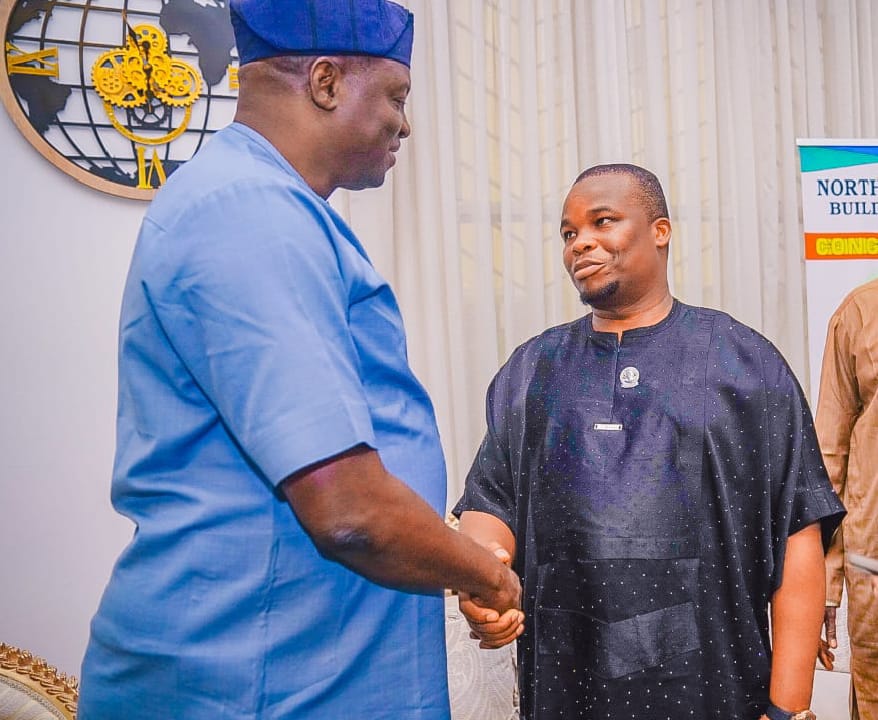
Chief Goodluck Nwaneri, a Director city boy movement, has paid a condolence visit to the APC National Chairman, Prof. Nentawe Yilwatda, at his residence in Abuja, following the passing of his beloved mother, late Mrs. Lydia Toma Yilwatda.
During the visit, Chief Nwaneri expressed his deep sympathy to Prof. Nentawe and the entire Yilwatda family, describing the death of a mother as a painful and irreplaceable loss. He noted that the late Mrs. Lydia Toma Yilwatda lived an exemplary life of faith, humility, and service, evident in the leadership qualities and values instilled in her children.
Chief Nwaneri prayed for the peaceful repose of her soul and asked God to grant the APC National Chairman and his family the strength and fortitude to bear the painful loss. He also encouraged them to find comfort in the enduring legacy their mother left behind.
He further reaffirmed his solidarity with Prof. Nentawe in this moment of grief, while urging the family to remain strong and united in honoring the life and memory of their departed matriarch.
-

 Entertainment2 weeks ago
Entertainment2 weeks agoBig Brother Naija Live Update: KOLA, SULTANA Evicted #BBNaija
-

 Entertainment2 weeks ago
Entertainment2 weeks agoImisi Crowned Winner of Big Brother Naija Season 10
-

 Music News2 weeks ago
Music News2 weeks agoOdumodublvck Set to Drop ‘Industry Machine’ The Album Featuring Davido, Wizkid, Skepta & Stormzy
-

 News3 weeks ago
News3 weeks agoFirst Lady, Oluremi Tinubu Celebrates World Teachers’ Day 2025
-

 Entertainment4 weeks ago
Entertainment4 weeks agoVIDEO: AYRA STARR & REMA SHUT DOWN GLOBAL CITIZEN FESTIVAL 2025
-

 Entertainment2 weeks ago
Entertainment2 weeks agoBig Brother Naija Winners Ranked by Vote Share (2006 – 2025)
-
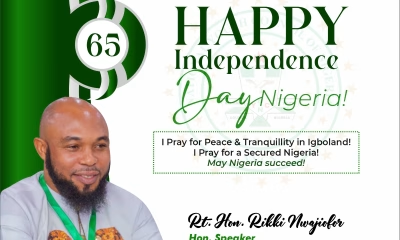
 News3 weeks ago
News3 weeks agoNdigbo Youth Parliament Speaker Calls for Equity, Unity, and Youth Empowerment on Independence Day
-

 News4 days ago
News4 days ago16 Nigerian Military Officers Arrested Over Alleged Coup Plot to Oust President Tinubu
-

 Entertainment3 weeks ago
Entertainment3 weeks agoBBNaija Season 10: Faith Wins Innoson Task, Gets First Car
-

 News3 days ago
News3 days agoNed Nwoko Gives Reason for Clash with Regina Daniels



























